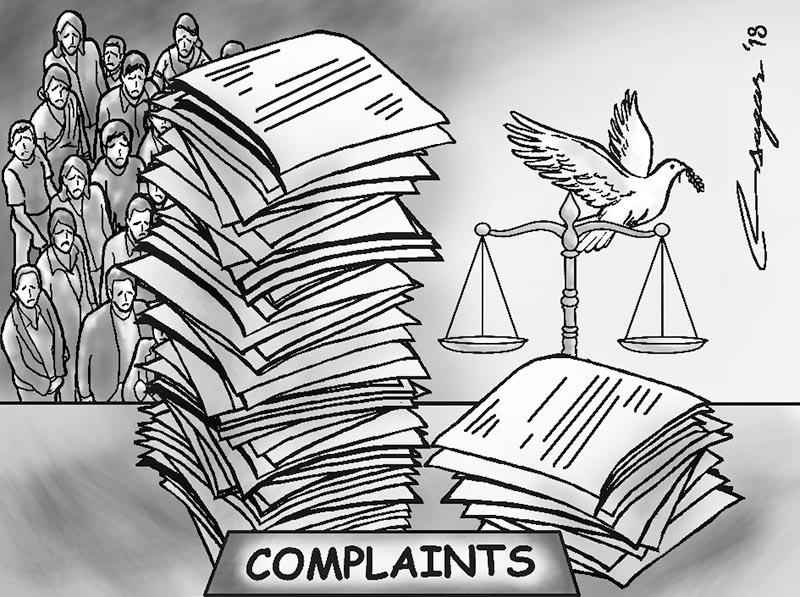‘Zero draft’ starting point for talks with victims
Kathmandu, January 24
The government has begun consultations with stakeholders of the decade-long conflict on amendment to the transitional justice act, with the ‘zero draft’ unveiled in June last year being the ‘starting point’ for talks.
Conflict victims have already rejected the draft, stating it is nothing but a ploy to provide immunity to perpetrators of conflict-era rights violations.
As per the draft, perpetrators will not get amnesty in serious human rights violations, but may get waiver in sentences as per the prevailing laws — up to 60 per cent if they did not reveal the truth and did not assist the court, but if they assisted the court, revealed the truth, apologised to the victims and pledged not to commit such crimes again, they could get waiver of punishment up to 75 per cent.
The draft, which proposes to have retroactive effects, also proposes a maximum jail term of three years in other crimes, and perpetrators of other crimes could also be sent to open prison if they helped the cause of transitional justice and assisted the investigation.
However, government Secretary Ramesh Dhakal, who is actively involved in the act amendment process, said the draft was just a basis for starting the consultations and not the official view of the government. It could be revised as per the outcome of the consultations with stakeholders. “The government plans to conduct consultations not only in Kathmandu, but also at the province level,” he told The Himalayan Times.
Today, the government held consultations with a few conflict victims at the Office of the Prime Minister and Council of Ministers. Participants of the meeting were, among others, Secretary Dhakal form the government’s side and Ram Kumar Bhandari, Gopal Shah and Gita Rasaili from the victims’ side. The government has invited other victim leaders, including Suman Adhikari and Bhagiram Chaudhary for talks tomorrow.
Dhakal said the talks, still in preliminary phase, focused on how to take forward the consultation process. Bhandari said they were ready to cooperate with the government on consultations as long as it wanted to talk to victims and other stakeholders. He said the government wanted to begin consultations on the basis of the old draft and prepare a new one after consultations with NHRC, victims and stakeholders. “We’ve been seeking consultations from the very beginning, so we will cooperate with any efforts made for consultations,” he said.
With the government just beginning the consultation process, talks are unlikely to be over by the end of the tenure of the two transitional justice mechanisms — Truth and Reconciliation Commission and Commission of Investigation on Enforced Disappeared Persons. Mandates of the two commissions expire on February 9.
But Dhakal said the government had the option of extending the tenure of the commissions and continuing the consultations. Bhandari also said they were open to the option, as long as the talks continued.
The government has been maintaining that the amendment would be done on the basis of six factors — the Comprehensive Peace Accord; Nepal’s national and international obligations related to human rights; fundamental principles of the transitional justice; decisions and orders of the Supreme Court; sentiments of conflict victims; and Nepal’s legal and political processes.






